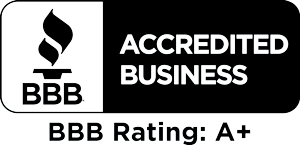Frequently Asked Questions
What is a “home inspection”?
A home inspection is a visual examination of the physical structure and systems of a home. If you are thinking of buying a house, co-op or condominium, you should have it properly inspected before the final purchase, by an experienced, impartial professional, licensed, ASHI certified, home inspector.
Why do I need a home inspection?
The purchase of a home may well be the largest single investment you will ever make. You should know exactly what to expect--indoors and out--in terms of repair and maintenance and their costs. A fresh coat of paint could be hiding serious structural problems. Watermarks in the basement may indicate a chronic seepage problem or may be simply the result of a single incident. The home inspector interprets these and other clues, then presents his professional opinion as to the condition of the property before you buy it, so you can avoid unpleasant and possibly costly surprises afterwards.
Of course, a home inspection will also point out the positive aspects of a home, as well as the type of maintenance that will be necessary to keep it in good shape. After a Total Home Inspection, you will have a much clearer understanding of what it is you are about to purchase, and you will be able to make your decision confidently.
If you have owned your home for a period of time, a home inspection can identify problems in the making and recommend preventive measures, which might avoid future repairs.
What does a home inspection include?
A complete home inspection includes a visual examination of the house from top to bottom. The inspector examines the heating system, the central air conditioning system (when ambient temperature permits), the interior plumbing and electrical systems, the roof and visible insulation, walls, ceilings, floors, windows and doors, the foundation, basement and visible structure.
Can I do it myself?
Even the most experienced homeowner lacks the knowledge and expertise of a professional home inspector who is fully educated and who has inspected hundreds, (in our case, thousands) of homes in his career. An inspector is equally familiar with all the elements of home construction and with the proper installation, maintenance and interrelationships of those elements. It should also be considered that, most buyers find it very difficult to remain completely objective and unemotional about the house they really want, and this may lead to a poor assessment.
What will it cost?
The inspection fee for a typical one-family house varies depending upon the size of the house, particular features of the house, age, special structures, etc. Our staff can give you a quote after you have answered some questions regarding the property. However, cost should not be a factor in the decision whether or not to have a home inspection or even which home inspector to choose.
Can a house "fail" inspection?
No. A professional home inspection is simply an examination into the current condition of your prospective home. It is not an appraisal or a Municipal Code inspection. A home inspector therefore will not pass or fail a house, but will simply describe its condition and indicate which items will be in need of immediate or near future major repair or replacement.
When do I call in the home inspector?
The best time to call in the home inspector is after you're offer on the house has been accepted and before you sign the contract. Or you can ask your lawyer to include an "inspection clause" in the contract, making your purchase obligation contingent upon the findings of a professional home inspection.
Do I have to be there?
It is a good idea for you to be present. By following the home inspector around the house, by observing and asking questions, you will learn about your new home and get some tips on maintenance in general -- information that will be of great help to you after you've moved in.
What if the report reveals problems?
If the inspector finds fault in a home it doesn't necessarily mean you shouldn't buy it, only that you will know in advance what type of repairs to anticipate. A seller may be willing to renegotiate the purchase price because of significant problems discovered in inspection or even make repairs to the systems observed to be deficient. If your budget is very tight, or if you don't wish to become involved in future repair work, you may decide that this is not the house for you. The choice is yours.
If the report is good, did I really need an inspection?
Definitely! Now you can complete your home purchase with peace of mind about the condition of the property and all its equipment and systems. You may also have learned a few things about your new home from the inspector's report, and will want to keep that information for future reference. Above all, you can feel assured that you are making a well-informed purchase decision and that you will be able to enjoy your new home the way you want to.
Who gets the home inspection report/information?
Our consultation is dedicated solely to the buyer, our client. We do not discuss the report with anyone else without your permission. We do not sell or share the report with anyone else, unless specifically instructed to do so by our client.
Does the Real Estate Agent need to be there?
It is customary for real estate agents to be present at the home inspection, because they are responsible for the home. They are also usually responsible for allowing you and your inspector access to the house. Additionally, they may be able to answer questions. If the home is "for sale by owner", the owner is usually present.
Our inspection presentation is always focused on you, the buyer. The presence of the owner, seller, or real estate agent can be helpful in some cases (especially Buyers Brokers who usually take a more active role in the home inspection process), but will not detract from your inspection or distract our inspector.


